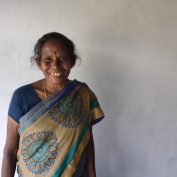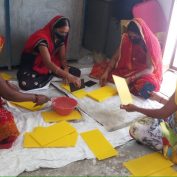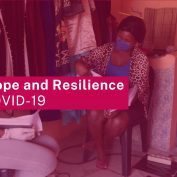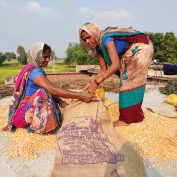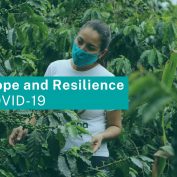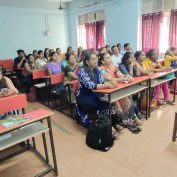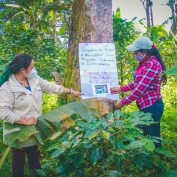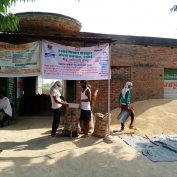Farmer, Chairperson, Mother: Supporting Women Leaders in India
In Andhra Pradesh, India, women like Nimmaka Varahalamma are working with TechnoServe to gain the skills and confidence they need to successfully lead farmer producer organizations in their communities.
Microenterprise Development: An Opportunity in Times of Crisis
In India, women farmers often face challenges accessing the same information, networks, and capital as their male counterparts. TechnoServe is helping women like Rajkumari Akhilesh improve their livelihoods and overcome significant obstacles by starting their own microenterprises.
What is Unpaid Care Work and How Does it Impact Women in the Developing World?
When the first cases of COVID-19 emerged early last year, the phrase “Stay Home, Stay Healthy” took on new meaning. But for many women around the globe, “staying home” was not a pre-pandemic choice, and it will remain a reality long after the health crisis is over. Learn how TechnoServe is working to find and implement solutions that free up time for women to pursue their economic dreams outside of the home.
Hope and Resilience During COVID-19: Part 3
For over 50 years, TechnoServe has helped hardworking women and men in the developing world gain the skills, connections, and confidence to create self-sustaining businesses and build a path out of poverty. In part three of this series, we ask a few of these farmers and entrepreneurs to share how the COVID-19 pandemic has impacted their lives and how they are coping with its effects.
Women Who Lead: Empowering Women Farmers in India
In India, women often face gender-specific challenges that limit their ability to achieve their full potential. TechnoServe is working to identify and support women leaders in male-dominated spaces, such as in farmer producer organizations throughout the states of Andhra Pradesh and Uttar Pradesh.
Hope and Resilience During COVID-19: Part 2
For over 50 years, TechnoServe has helped hardworking women and men in the developing world gain the skills, connections, and confidence to create self-sustaining businesses and build a path out of poverty. In part two of this series, we ask a few of these farmers and entrepreneurs to share how the COVID-19 pandemic has impacted their lives and how they are coping with its effects.
Turning Parent Objections Into Support to Promote Youth Employment
In the Indian tradition and culture, it is common for parents to be highly involved in their children’s decision-making processes, particularly regarding career choices. However, parental involvement can also sometimes be a barrier to youth employment. TechnoServe is engaging both youth and their parents to ensure that young people can pursue formal sector jobs with their parents’ support.
TechnoServe’s Top 5 Stories of 2020
In a year filled with challenges, TechnoServe has remained committed to helping farmers and small businesses fight the impact of COVID-19. While some of our methods may have looked a bit different this year, our mission has remained the same. Our five most-read stories from 2020 illustrate just a few of the ways that TechnoServe has helped women and men in the developing world overcome obstacles to build brighter futures.
How Smallholder Wheat Farmers in India are Increasing Incomes and Accessing New Markets
In Uttar Pradesh, India, wheat farmers like Manoj Kumar are working to achieve better lives for their families but face countless obstacles. TechnoServe is helping local farmer organizations strengthen business operations, enabling thousands of their members to access better markets and earn higher incomes.




